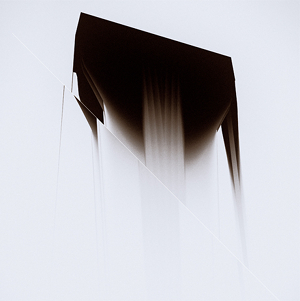Hiawatha Language
Those who have been following Egyptrixx sets over the last year or two have heard […]

Those who have been following Egyptrixx sets over the last year or two have heard the Toronto producer segue swiftly out of the post-dubstep box and into a mysterious and ever-heavier techno idiom, one that incorporates brooding atmospheric touches from black metal and shoegaze. Rivulets of reverb and swaths of delay are all over his 2011 album Bible Eyes, and this interest in rock dynamics has spilled over into his latest project, a duo called Hiawatha.
Hiawatha’s Language is no rupture, but a logical next step in Dave Psutka’s canon. With partner Ian McGettigan, the bass player and songwriter for ’90s Canadian alt-rock act Thrush Hermit, Psutka creates a lingua franca in between electronic music and rock, using equal parts analog and digital—both “real” instruments and synthesized ones—to create the desired effect: an enveloping and hypnotic pop ambience. Sometimes, this takes a more traditional song form—the cascading “Dogs of War,” the early-morning mist of “Miracle Language,” and the walking meditation “Glass” are all set off by McGettigan’s soothing vocals and elliptical lyrics—though much of the album is instrumental ebb and flow. Album opener “Hiawatha” sets forth the mission statement: feedbacking guitars (sounding for all the world like a between-song interlude at a Sonic Youth show) dissolve into a dark fire of melting, deconstructed tribal acid that is intermittently snuffed out by a warm blanket of hazy synths and vocals. It’s a bit like walking between rooms at a festival, albeit one where the palette is drone, doom, minimal, and darkwave.
That’s not to say Language is a depressing album: its palette is grey, purple, and navy, rather than black. And though the dialect is more muted and muffled, the language is still (loosely) synth-pop; in vibe and style, Hiawatha has much in common with Holy Other, Tycho, and fellow Canadians Purity Ring and Trust (with whom Psutka has collaborated in the past). What sets Hiawatha apart is Psutka’s way of making the synthetic feel organic—an economy of effect and mixdown he’s carried through his various releases. Putting the “tricks” in Egyptrixx, he finds a way of panning and abstracting keyboards, percussive elements, and bass to sound like elements of the natural world: condensation dripping in a cave, dragonflies dancing on a lake, glaciers groaning and readjusting, the communication of prehistoric animals swimming in the depths of the deepest sea.
And as if nodding to the noble leader of the Iroquois from which the duo takes its name, Hiawatha dabbles in the occasional tribal texture, from kicks and toms that feel lifted from the ceremonial circle to distorted noise suggesting a warrior on a cliff watching a storm brewing in the distance. “Old Black,” a cover of a song by seminal Seattle doom metal band Earth, is one to make the elders proud: a deep trance of rolling drums made hazy with the smoke of a MIDI peace pipe and the piercing echo of digitally demented war cries.

